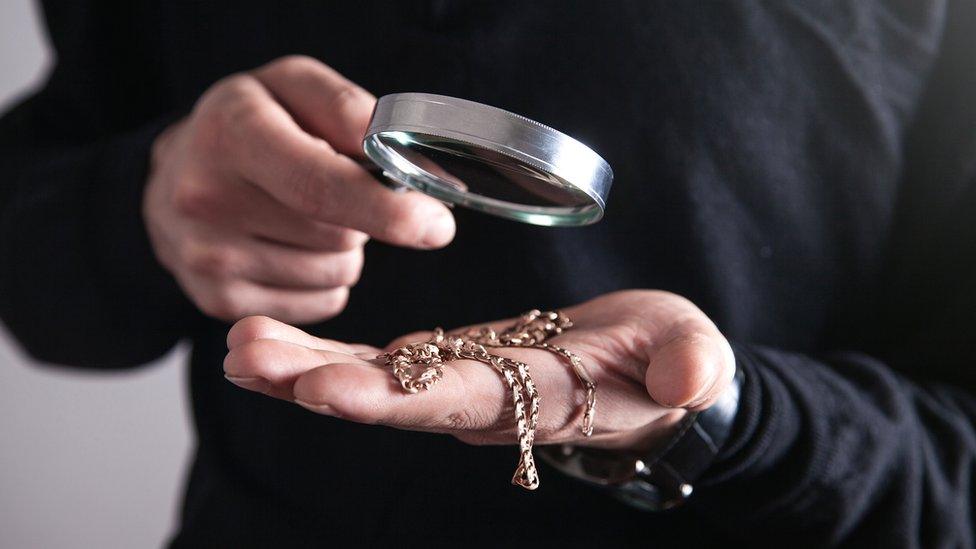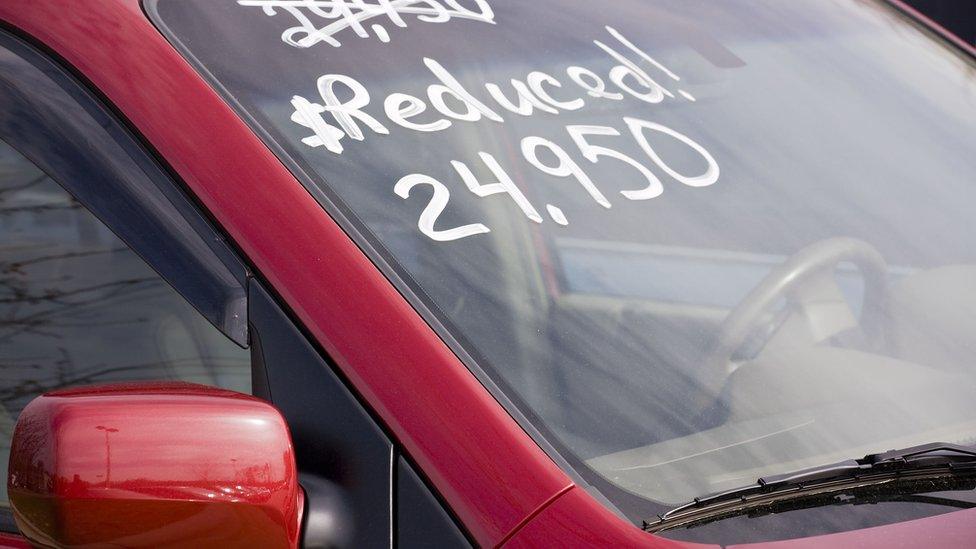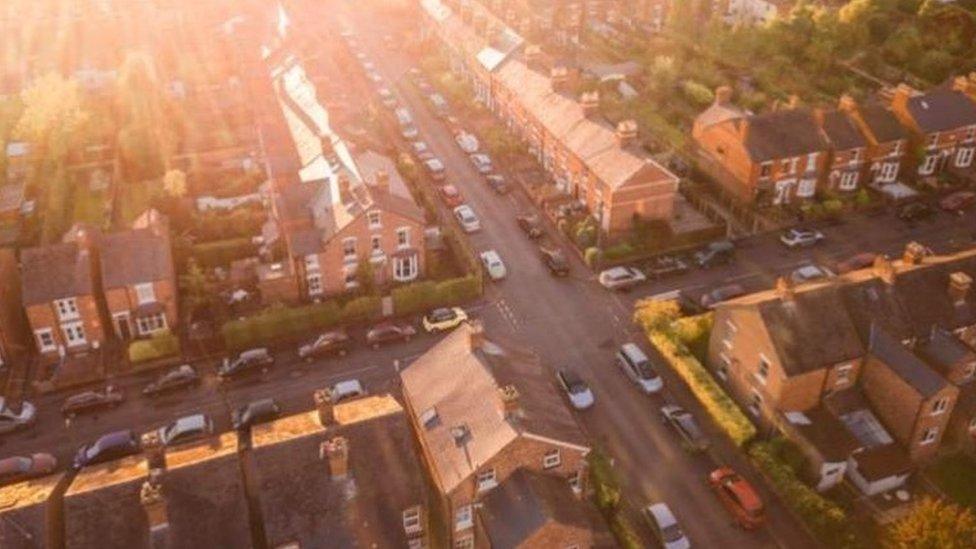Coronavirus: Freeze on pawn, payday and car loan payments
- Published
- comments

People struggling with payday loans, car finance and pawn shop borrowing will be granted a payment holiday under plans by the City watchdog.
The Financial Conduct Authority (FCA) said the measures would help borrowers who are experiencing money problems amid the Covid-19 outbreak.
The FCA wants motor finance firms to grant a three-month freeze.
It is also asking firms specialising in rent-to-own, buy-now-pay-later and pawnbroking loans to delay repayments.
Those people with a payday loan will be given a one-month reprieve under the FCA's plan, external.
Last week, the watchdog announced a three-month freeze on loan and credit card repayments.
"We are very aware of the continued struggle people are facing as a result of the pandemic," said the FCA's interim chief executive, Christopher Woolard.
"These measures build on the interventions we announced last week and will provide much-needed relief to consumers during these difficult times."
'Temporary financial difficulties'
The FCA will consult with finance firms and expects to finalise proposals by 24 April, "with them coming into force shortly afterwards".

Motor finance companies have been asked not to repossess cars or end loan agreements with customers who are "experiencing temporary financial difficulties due to coronavirus".
The FCA also said companies should not alter contracts in an "unfair" way, such as using the temporary fall in car prices caused by the pandemic to change the so-called balloon payment expected at the end of an agreement.
Meanwhile, pawnbrokers have been advised not to sell items that struggling customers have borrowed against.
The FCA said: "If the firm has already informed the consumer they intend to sell the item, they should suspend the sale during the payment freeze."
'Disappointing'
The watchdog said the proposed freeze on payday loan repayment was a shorter one-month period because it "reflects both the much shorter length of most loans and, given interest rates tend to be higher than for other high-cost credit products, prevents firms from accruing additional interest during the freeze period".
But Sara Williams, an adviser who runs the blog Debt Camel, questioned why there was a difference in the length of payment holidays for different types of loans.
"I think these proposals are disappointing," she said. "It's good that interest has to be stopped, but many people will find a one month break isn't long enough.
"The three month breaks being proposed for car finance and credit cards are both more helpful and more realistic for people with coronavirus problems."
However, she added: "One month is better than nothing so if you need help phone up and ask for it."
Mr Woolard said: "We have tailored our measures to specific products. For most of these proposals, firms and consumers should consider the amount of interest which may build up, and balance this against the need for immediate temporary support.
"If a payment freeze isn't in the customer's interests, firms should offer an alternative solution, potentially including the waiving of interest and charges or rescheduling the term of the loan."
- Published14 April 2020

- Published2 April 2020
